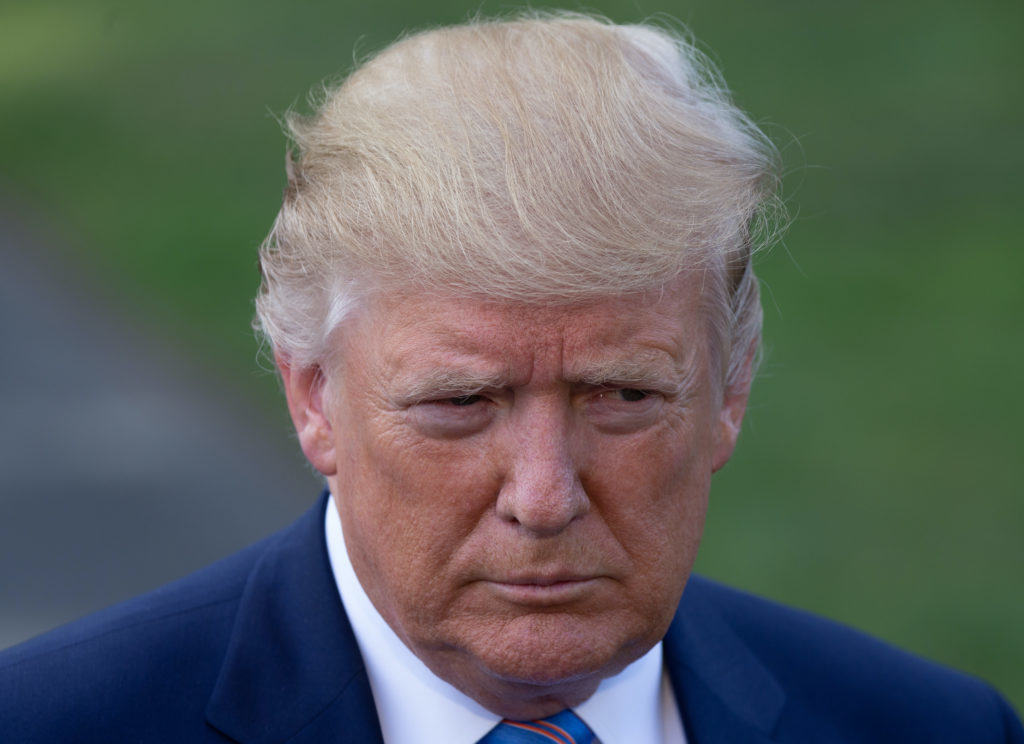New evidence of Donald Trump’s stochastic terrorism

We may never know for sure if Henry II of England was asking a rhetorical question when he said of Thomas Becket, on Christmas Day, 1170, “Will no one rid me of this turbulent priest?” Rhetorical or not the question had dire consequences when four “patriots” in earshot of the King took it upon themselves to famously murder Becket in Canterbury Cathedral four days later.
Even the offhand pronouncements of the powerful can have consequences. When the powerful know this and use this fact to shape public action through coded messages the results can be both devastating and difficult to prove in a court of law.
Throughout his presidency Donald Trump abused this power to create death, violence and an ugly divide across the American political landscape. For example, reports of hateful and violent posts on Facebook started pouring in on the night of May 28, 2020, after then-president Trump sent a warning on social media that looters in Minneapolis, rioting as a result of the recent murder of George Floyd, would be shot. In the immediate aftermath of Trump’s threat, reports of violence and hate speech increased “rapidly” on Facebook across the country.
It recently came to light that a contemporary Facebook internal company analysis of Trump’s social media posts at the time revealed the connection between Trump’s threat and the hate speech and violence that followed. We will never know for sure what we might have been spared in the way of that hatred and violence had Trump adopted a conciliatory tone, and that finally is the problem. We don’t know for sure and it therefore can be difficult to prove that a connection exists at all.
Welcome to the world of stochastic terrorism, or at least a variation of it. The term stochastic terrorism began life as meaning when relatively small and specific acts of terror (such as suicide bombings, individual murders etc.) are tactically used to incite even more global and strategic terror. A recent variation has come to include public speech that can be expected to incite terrorism without (necessarily) a direct organizational link between the inciter and the perpetrator.
Stochastic terror is the mechanism that made it possible for Donald Trump to incite the insurrection of January 6 in a public speech at The Ellipse and still maintain a certain degree of plausible deniability. Stochastic terrorism an insidious weapon in the hands of an evil man like Trump, and it’s one that he uses to this day for devastating effect.
Throughout his presidency Trump employed dog whistles, innuendo and outright verbal assaults on people and organizations that culminated in violence and death threats and sometimes murders perpetrated by his followers. For example, members of the Fourth Estate all but begged the then-president to stop referring to the press as “the enemy of the people.” Yet Trump continued to use that phrase whenever he was in the mood to do so without the slightest concern for its destructive consequences.
To date Trump has paid only a small price for his provocative language. He has been banned on social media including Twitter and Facebook. The reasons given in each case were violations of those social media giants’ terms of services, but the regnant cause in both cases was stochastic terrorism.
Leaked Facebook memos and documents provide a first-hand look at how Trump’s social media posts caused increased anger in an already deeply divided country. Facebook’s own internal, automated controls, used to catch posts in violation of the rules, predicted with almost 90% certainty that Trump’s message to shoot looters would end in violence. That message was in clear violation of the tech company’s rules against inciting violence. Yet, facebook made the conscious decision to override the controls and take no action at the time.
The reason? “Facebook really benefited from Trump and Trump’s ability to draw attention and engagement through outrage,” Jennifer Mercieca, a professor at Texas A&M University said. “They wanted Trump to keep going on.”
Clearly, Facebook in general and Mark Zuckerberg in particular weren’t rich enough. They needed more and still more money and power, even if it was achieved at the low, low cost of spreading even more violence, hatred and death across the American political landscape. Facebook and Twitter became perfect tools to be abused by an evil man who could deny he had anything to do with the resulting violence. After all, Trump, Twitter and Facebook must have reasoned in the end that no one will ever know for sure. And, as ever, ladies and gentlemen, brothers and sisters, comrades and friends, stay safe.

Robert Harrington is an American expat living in Britain. He is a portrait painter.
